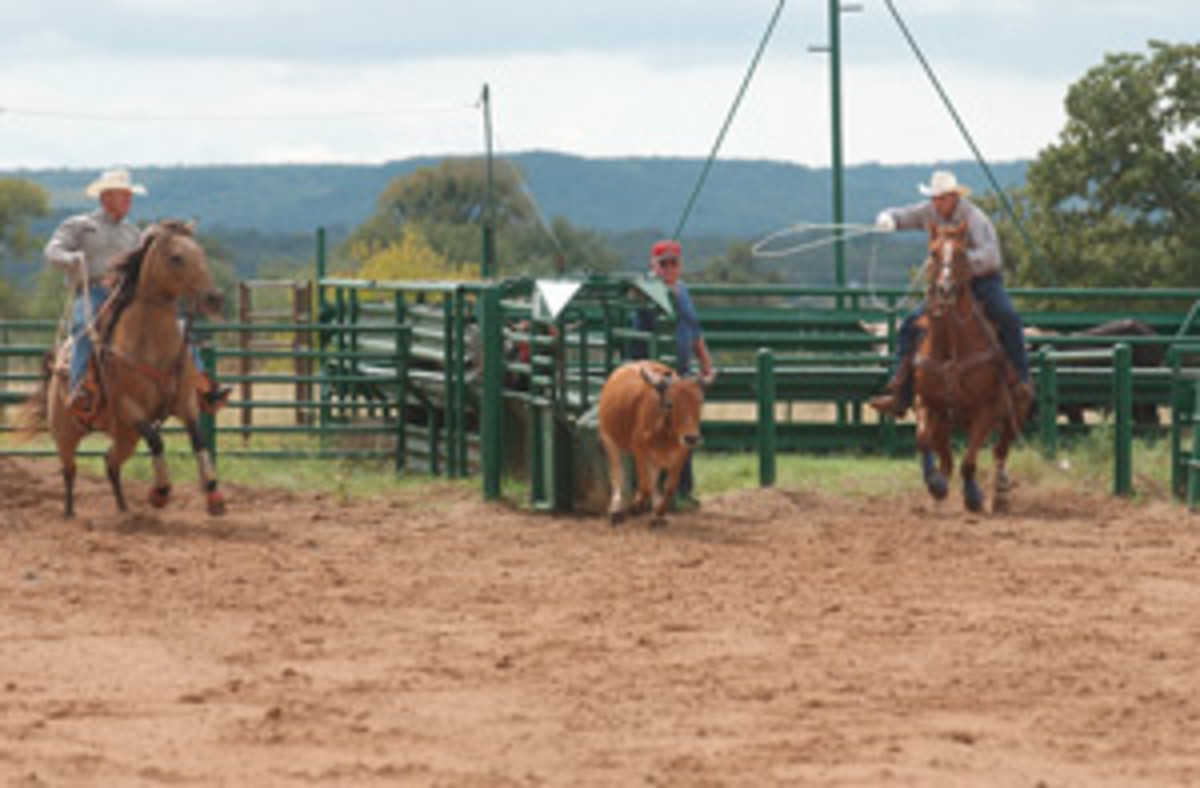Everyone in life, whatever your hobby or passion, dreams of being a certain individual at the top of his or her game. If you play basketball, you dream of being Michael Jordan. If you golf, you dream of playing just like Tiger Woods. If you’re a kid who wants to rope, you might look up to some of us. When I was a kid, I pretended to compete against Leo Camarillo and H.P. Evetts when I practiced. There are different paths and no two end up being exactly the same, but in my opinion there are some basic steps it takes to get to the top.

Nobody goes straight from high school to the pros. It’s just not going to happen. I’m not saying you won’t have the talent it takes by that time, but you have to have some experience with things like travel, entering and knowing the ropes in general in order to make it. To have any chance at doing that, you’d have to have a veteran leading you around by the ear, like Tee (Woolman) did with Leo (Camarillo) in 1980. Tee’s the first to admit that he wouldn’t have been a rookie champion without Leo’s training and guidance.
I suggest college and amateur rodeos to a kid leaving high school who thinks he wants to rope for a living. The college rodeos are pretty limited, but it’s important to get a good education. Such a small percentage of all ropers make it to the big time and have any kind of longevity. Get that education so you have something to fall back on, and get some extra experience at the amateur rodeos on the weekends.
Such a small percentage of guys make a living rodeoing for 20 years. To make a living and actually retire on rodeo earnings is a real longshot. You need a backup plan, because there is life after rodeo and it’s up to you to set that up along the way. Believe me, the end of a professional roping career comes faster than you might think.
Even if you do make it, you aren’t going to have a fairytale season every year, I don’t care who you are. Take advantage of the down time between rodeos,
driving time, etc.? Take that time to think of things to supplement your income during and after your career. Some of us buy and sell horses, put on schools and ropings. Others do other things. A good college education doesn’t hurt anyone in anything they do, in or out of rodeo.
It all starts at the junior rodeo level. Then you graduate from the junior rodeos to high school and college rodeos. Every step along the way is a building block, and if you skip a step a lot of times it sets you back.
I know so many guys who were pro material, but jumped in too quick and got their butts kicked. You need so much experience to rodeo for a living. But first you need tons of jackpot and amateur rodeo experience.
You graduate from junior and high school rodeos, and move into jackpots and college rodeos. This is all a time to take your competitiveness to the next level. The goal is to be the king of the mountain at every level.
When you jump in with the pros, you’re basically fed to the sharks. If you aren’t ready for that, it’ll devour you. All the world champs are there, and that can be very intimidating if you don’t have that solid foundation of the various levels behind you. Suddenly, you’re roping against your heroes. Even the big fish from the smaller ponds have a tough time when they first join the PRCA.
That’s why it’s so important to go through the steps. You always need to strive for more. You need to beat the competition up on a consistent basis at every level to build your confidence along the way. The guys that are going to make it in the pros are going to dominate at the college rodeos, their local jackpots and amateur rodeos. That next step is a big one, but all that experience really helps when you get there.
The thing I really like about the amateur rodeos when it comes to gaining experience is that it’s usually enter twice. They’re usually one-headers, but you get two runs at every rodeo so you’re getting twice the experience. One rodeo gets you twice the runs of a PRCA one-header.
At the amateur rodeos you’re bombing for first every run. You can’t hold anything back, and you let your hair down like that twice at every rodeo. That kind of experience prepares you for what’s to come. The guys who came out of the amateur ranks have a big advantage when they get to the PRCA. Boogie Ray is a prime example.
It’s so important to take the right avenues, so you don’t get beat up and broke before you have a chance to set out with experience under your belt. If you do get hit over the head, don’t get discouraged. It doesn’t necessarily mean you weren’t good enough, it tells you you didn’t have enough experience. Get that, and try again. It’s not easy out here. In fact, it’s extremely hard. This is one humbling sport.










